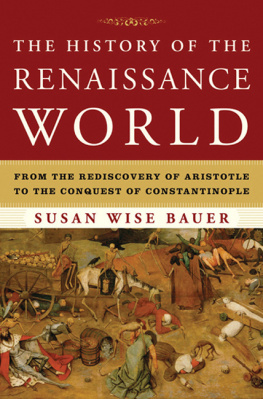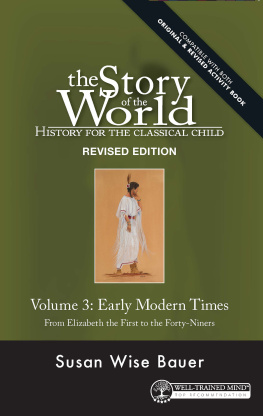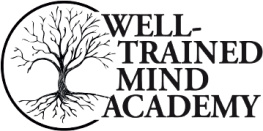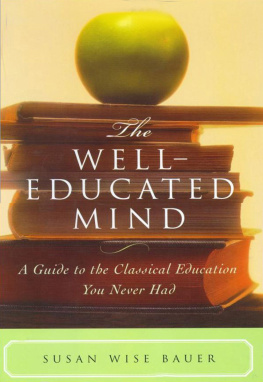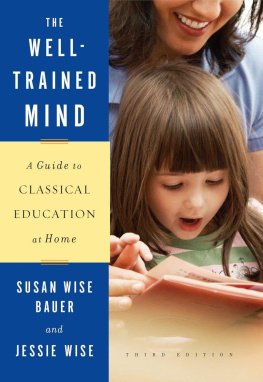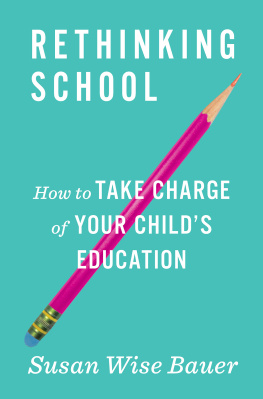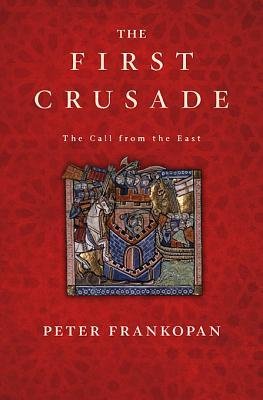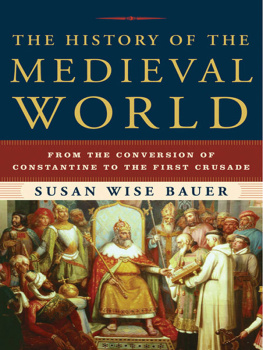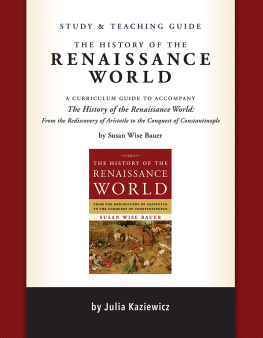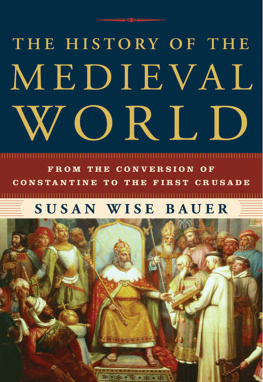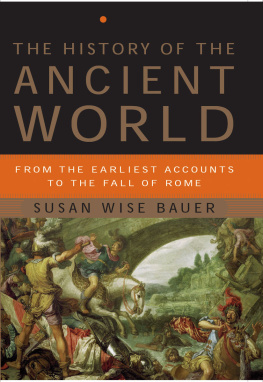
M Y GRATITUDE to the team at W. W. Norton for all theyve done to support not only this volume but the two that came before it. I cant name you all, but thanks in particular to Eleen Cheung, Melody Conroy, Julia Druskin, Ryan Harrington, Bill Rusin, and Nomi Victor.
Most of all, thanks to my longtime editor, Starling Lawrence, who has provided not only editorial guidance but also moral support, a listening ear, and the occasional robust admonition to quit whining and get on with the job. And I am greatly indebted to both Star and Jenny for the hospitality, good food, and much-needed strong drink.
A massive project like this is never a one-person job. Thanks also to the team at Peace Hill: Justin Moore, who knows more historical details (and random interesting factoids) than Google; Sarah Park, mapmaker extraordinaire and poet even-more-extraordinaire; Kim Norton, the most unflappable office manager in the known universe; Jackie Violet, whose job description keeps expanding but never outsizes her good humor; and Mark Hicks, who kept the farm from falling to pieces while I was wandering around in the fourteenth century.
Special thanks to Patricia Worth, an executive assistant who can arrange a flight to Prague, book a school speaking event, pick out linens for a bed-and-breakfast, and help castrate a goat, all in the same eight-hour workday. And no, shes not looking for a new job.
Thanks to Mel Moore, Liz Barnes, and Achsa Fisher-Nuckols for still answering my emails and phone calls, even when those are long, long overdue; to Boris Fishman, for sharing my professional universe; to Greg Smith, for asking me how its going; and to Diane Wheeler, for living in this world.
My family hasnt disowned me yet, despite my frequent lapses into history-induced catatonia. To Christopher, Ben, Dan, and Emily: I make really good cookies. Hope they make up for the number of times you have to say, Mom? before I emerge from the past and say, What? To Jay and Jessie Wise: You taught me to read. See what happened? And to Peter: Sumus exules, vivendi quam auditores . Still, but not always.
The History of the Medieval World:
From the Conversion of Constantine to the First Crusade
The History of the Ancient World:
From the Earliest Accounts to the Fall of Rome
The Well-Educated Mind:
A Guide to the Classical Education You Never Had
The Story of the World: History for the Classical Child
Volume I: Ancient Times
Volume II: The Middle Ages
Volume III: Early Modern Times
Volume IV: The Modern Age
The Complete Writer: Writing with Ease
The Complete Writer: Writing with Skill
The Art of the Public Grovel:
Sexual Sin and Public Confession in America
WITH JESSIE WISE
The Well-Trained Mind:
A Guide to Classical Education at Home

Between 1100 and 1122,
the Holy Roman Emperor and the king of England both defy the pope,
and an archbishop makes use of Aristotle
T HE FIRST CRUSADE had just endedand with it, an age.
Eight hundred years after the Roman emperor Constantine led his army against his own people under the sign of the cross, Christian warriors crossed the Bosphorus Strait as a unified army of faith, roused by the supreme leader of the one Christian church to fight against Turks advancing from the east. No sooner had the Crusade succeeded than the victorious Christian knights sacrificed their allegiance to the one true faith and claimed another membership. They were, first and foremost, not sons of the church but sovereigns of their own private kingdoms.
Among the many meanings of what it meant to be Christian , one would govern the next four and a half centuries: to be a man of God meant power .
THE RIPPLES of the First Crusade spread out from Syria, in a widening circle that lapped both east and west.
In England, the wrong king inherited the throne. -->
In fact, Henry wasnt Williams heir. The English throne should have gone to Henrys older brother Robert, Duke of Normandy, but he was still on his way back from the First Crusade. Before he could claim his crown, Henry invaded Normandy.
The two brothers met in battle near the Norman village Tinchebray; the Duke of Normandys army was defeated, and Robert was captured and imprisoned for the rest of his very long life. He died in his eighties, still under guard. As for Henry I, he took the title of Normandy for himself, becoming (like his father the Conqueror) both king of England and Duke of Normandy.
His reign, which had begun through force and usurpation, now took a turn towards law. As one of his very first acts, he issued a new declaration: the Charter of Liberties. The first article promised that the holy church of God would remain free from royal control, its lands from royal confiscation. But the remaining thirteen articles were all directed towards his peopleparticularly towards the barons of England.
The barons: the newborn aristocracy of England. -->
Unlike the thanes, the Norman barons did not consider themselves landowners, only land holders . William the Conqueror brought into England a new kind of kingship. As monarch, he claimed to own the entire kingdom: all English land, all Norman land, was the possession of the king. The barons were his tenants in chief, and in return for their new estates, they owed the king a certain number of armed men for his use: the servitium debitum .
This system was rooted in tenth-century Francia, where chaos and lawlessness had led the poor to serve their wealthier neighbors in exchange for protection. It became known as
These barons now owed the servitium debitum to Henry. But they remained fiercely protective of their own aristocratic privileges, and the Charter of Liberties assured them that the new king would not extort additional payments from them, or prevent them from disposing of their own possessions as they wished.
It was an odd thing for a Norman-born king to limit his own powersa recognition that twelfth-century England was at the beginning of a new era. But the Charter of Liberties was in reality a canny strengthening of Henrys hold on the throne. Know that by the mercy of God, it began, and by the common counsel of the barons of the whole kingdom of England, I have been crowned king. Henry was a usurper, crowned only with the support of the barons, and the Charter was designed to guard his power by keeping them on his side.
In fact, Henry intended to exercise as much authority as his people would allow. And, as soon became clear, more authority than the pope was inclined to grant him.
Like his predecessors, Pope Paschal II insisted on the papal right of investiture the power to appoint bishops throughout Christendom. Investiture was no small matter. The bishop of a city had authority over all of its ecclesiastical resourcesland, money, and men. He had as much power as any secular count or nobleman to build, collect revenue, hire private soldiers, and generally empire-build within the monarchs own land. But unlike a count or nobleman, a bishop could not marry and pass his estate to his son; each bishops death presented another opportunity for either pope or king to jockey into place a loyalist who would put those massive (and ever-growing) resources at the disposal of his master. Henry, claiming his rights as God-ordained, God-appointed, God-approved monarch of England, refused to give up this privilege.
The Archbishop of Canterbury, head of the English church, disagreed.
-->
Dialectic: the rules of systematic thinking and inquiry laid out by thinker a way to arrive at true conclusions that would apply, universally to the whole world, without making any reference to scripture. Aristotle offered the possibility of truth without God, of reason without faith.
Next page
